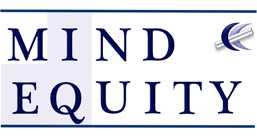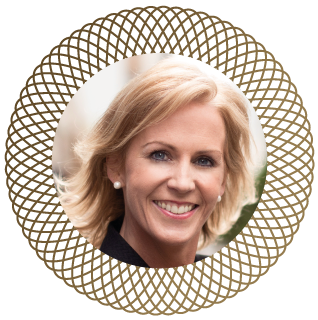The biases impacting decisions around the academic practitioner divide
Nuala Walsh

Bridging the Divide: Unmasking Biases Shaping Academia and Practice Integration
The journey begins with an exploration of the enigmatic "Academic/Practitioner Bias." Drawing from a rich personal background spanning three decades in industry and a robust academic foundation, the speaker is uniquely poised to unravel this phenomenon. Lecturing across global institutions and boasting three master's degrees, the speaker's breadth of experience is evident.
A passionate advocate for engagement, the speaker reflects on founding the global association of applied behavioral scientists as a response to the dearth of opportunities for interaction. The divide between academia and practice, both historical and psychological, is candidly addressed. While academia's core purpose is advancing and disseminating knowledge, the intricacies of this relationship extend beyond boundaries.
A compelling study by Emerald Publishing underscores the academic community's desire to influence applied academia. However, despite this relevance, merely a third of academics feel incentivized to engage with practitioners. The video probes into the root biases that fuel this divide, dissecting a multitude of underlying factors.
Familiarity bias, a driving force in decision-making, is linked to stereotyping and in-group, out-group bias. A compelling analogy emerges, as academics and practitioners form their own in-groups, leading to a natural gravitation towards like-minded individuals. Confirmation bias further solidifies these dynamics, as the pursuit of evidence reinforces preconceived notions. As the speaker aptly quotes, "We humans are stubborn, but our minds are even more stubborn."
Status quo bias thrives on resistance to change, impeding progress. The ostrich effect surfaces, unconsciously causing stakeholders to overlook engagement opportunities. Amid these biases, a path forward is illuminated from a behavioral perspective.
Structural incentives, regular communication, and shared research credits emerge as potential solutions. Drawing parallels with other fields, where behavioral science has paved the way for transformation, underscores the possibility of change. Mutual respect between academia and practice is hailed as a foundational step to diminish snobbery and drive collaboration.
With the Berlin Wall analogy in mind, the video concludes with a powerful message: barriers, though perceived, can be dismantled. Collaboration, not competition, stands as the key to bridging divides. This session aligns with global currents, urging academia and practitioners to unite in breaking down barriers, fostering a world driven by collaboration and mutual understanding.
As the video captures the essence of this profound discussion, it embodies the spirit of hope and progress, resonating with every academic and practitioner invested in a harmonious integration of knowledge and practice.
Speakers Info

Nuala Walsh Founder and CEO at MindEquity
Nuala Walsh is a distinguished Independent Non-Executive Director (INED), behavioral scientist, author, lecturer, TEDx speaker, and an award-winning former Chief Marketing Officer (CMO) in the investments sector. As the CEO of MindEquity today, she offers invaluable guidance to Fortune 500 companies, specializing in reputation management, culture transformation, strategic communications, and behavioral change.
Session Script: The biases impacting decisions around the academic practitioner divide
What is the Academic/Practitioner bias?
In my own personal experience: I'm three decades in industry as a practitioner, I also have quite a strong academic background, I lecture in various institutions around the world, and I’ve done my third masters. So, I'm quite well versed in both fields.
For me, I really have seen very few or far fewer than we should have opportunities for engagement and that's one of the reasons why I set up with several other people that global association of applied behavioral scientists, because in the world of human behavior, social science like, psychology, etc. We really need more interventions and more academic engagement. And what we have found, is that there’s just simply isn't any. There are several reasons for that, some of them are historical and some of them are also psychological in terms of why there isn’t enough bridge between academia and practice, there is an understanding that there are two schools of thought, one is that the purpose of academia is to advance knowledge and to contribute to its generation and dissemination.
But that's just not where it stops, and it's a question of boundaries, but it's also a question of mindset so I think it's important to broaden, not just the experimental research, that academics perform but also their mindset, how they think about it and to the extent to which they engage.
An example, In recent study by Emerald publishing, they actually found that 97% of academics, feel that their research has some relevance in applied academia, but only a third felt incentivized enough to actually engage with practitioners, so clearly there example opportunity to engage and collaborate is probably just a question of the structural disincentive, and a time so the academic cultures that you see in different universities that are preventing this happening.
Which biases impact the decisions to reduce this academic/practitioner divide?
The truth of it is, is that there’s actually probably too many to go into right now, but there are a number and it all goes boils down to, protection of the species and culture, the ones that maybe might be worth highlighting is, if you think about familiarity bias, which is all about how people make decisions based on how familiar they are with either facts, individuals situations or circumstances, there is a very strong link there to stereotyping, and also to the in group, out group bias.
The reality is that both sides, academics and practitioners are their own in group. So, by definition, academics, want to engage with academics, practitioners want to engage with practitioners, it's the same underpinning for gender discrimination as well. And as a result, people naturally gravitate towards people who are like themselves. So that's an obvious one which explains it, so these reasons explain it rather than rectified but I think the first port of call is to always understand it.
The second one is confirmation bias, where we seek out information that supports what we already think and reject anything that doesn't. So, when we look for evidence that supports our hypothesis. Again, we go to the familiar sources, so we go to other academics, within our discipline who more than likely will agree with us.
If you choose to go to a practitioner, by and large, you may or may not get the answer that you're looking for. So, it's a riskier area for people to engage in. But this is rampant, It's not just in academia, it's in the courtroom, the boardroom, the classroom. It's everywhere, but it's a really important one, as John Adams says: “We humans are stubborn, but our minds are even more stubborn”.
As a result of this, we narrow our options, academia narrows their options and so do the practitioners, so this isn't a blame game. If there isn't a fault on either side, they are human biases, but I think being aware of.
Another one that I think is important is status quo bias, which is all about. I like what I do, and I don't want to change, and that compelled us to maintain the current situation, even when better alternatives exist, i.e., engaging, co-founding, different sponsorships, different research, with other groups. So, when we like things as they are and we don't want to change, things never advance, of course, that’s what the academics really are fundamentally there to do.
I could point to another one which is of course the ostrich effect, which is as the name suggests the belief that people try and avoid predators by just sticking their heads in the sand. We unconsciously ignore the fact that maybe we're not engaging, enough with practitioners, even though, academics, for example, you know really need the funding, they need access to the large databases. But again, there's sometimes because of cultural barriers as an organization and university cultural barriers, it doesn't happen enough. Thus, that's an important one, as well.
What do you think can be done practically to shift this from a behavioral perspective?
I think will make a huge difference, we see it in financial services, where there is a lot of research with behavioral science about nudging tried to shift retirement income, you see us and Swiss pharmaceutical companies, they've engaged a lot of different Harvard professors, and even if you think of presidents and vote or politicians for voting. The amount of research that's been done to encourage voting to influence are very practical matters. Elon Musk didn't go into space without some academic research behind him, absolutely not.
So, if you need to find the incentive, you need to find the motivation and then nudge it accordingly. It's too easy to just list off a couple of things but what I have found is a greater mutual respect, is a very simple and easy way to reduce this kind of conflicts and barriers, there's a snobbery in all circles. I mean, sometimes in business you hear that if you can’t succeed in business, go teach, which is very narrow and incorrect assumption made.
For example, the US Secretary Condoleezza Rice had a very hand on visible complex role of government. Now she teaches political science and Stanford and writes books. So some people can successfully blend both, I think part of the practical way forward is to appreciate the bilateral direction, so you can move from academia to practice or you can move from practice back to academia, this is a two way flow, and I think the more people in those corridors, between that routing, the more fluid it becomes , the more psychologically people will reduce, so to sum up, it's a win-win to remove these barriers that are perceived by barriers that exist, sometimes we talk about it so much we make us really even though it's not really real, so I think we need to be careful about the power of suggestion. And like the Berlin Wall, most divides are usually artificially imposed by humans. So, what can easily be erected can also be easily taken down. It's simply a matter of choice and motivation. So, academia, just as much as practitioners and all disciplines, these are oath taking honorable professions, and people will eliminate the politics involved if they just remember that at the end of the day, these are human decisions about human individuals.
Collaboration is the key
If every academic that is listening to us right now and every practitioner who is a corporate leader is listening, it's so important to understand that it's so easy to come from one area to another, the shift is so easy it's not the boxes that we put on ourselves those limitations. So, cross collaboration not competition. This is the key. And thank you so much for shedding the light and such an important topic, and we really hope that today's conference will help bridge the divide between, not only academics, professionals and industry practitioners, but also in the world in general.

